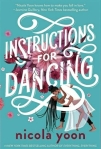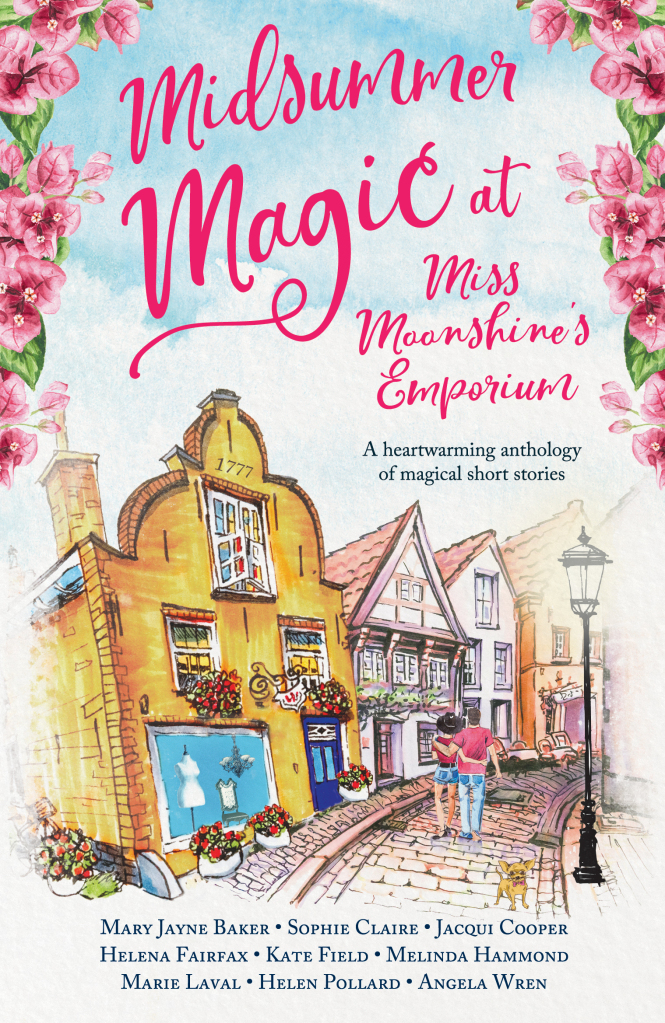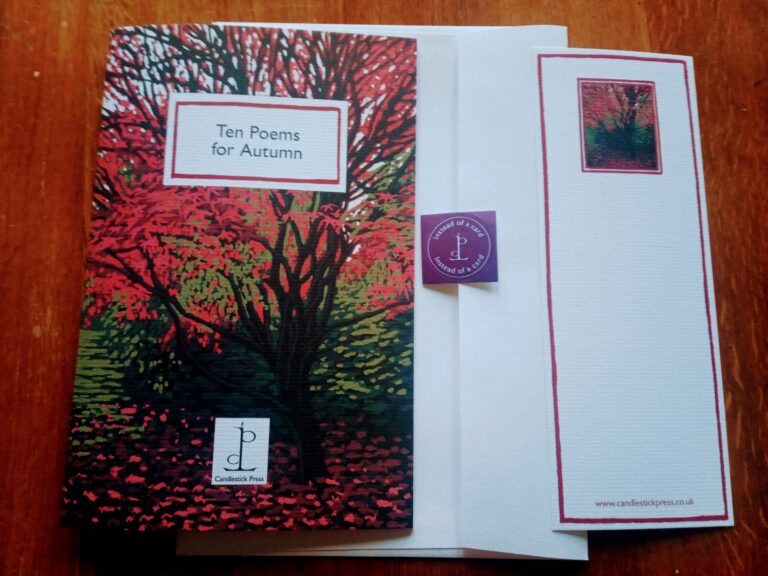 The writer’s journey is a quest that transcends the mere act of stringing words together. It is a profound exploration of the self. When navigating the landscapes of our minds, personality tools such as the Enneagram can offer illuminating guidance into our unique inner terrains. Knowledge about Enneagram types for writers can help us decipher what personal strengths and weaknesses shape our narratives and define how we approach our craft.
The writer’s journey is a quest that transcends the mere act of stringing words together. It is a profound exploration of the self. When navigating the landscapes of our minds, personality tools such as the Enneagram can offer illuminating guidance into our unique inner terrains. Knowledge about Enneagram types for writers can help us decipher what personal strengths and weaknesses shape our narratives and define how we approach our craft.
Systems of personality theory, such as the Enneagram and MBTI, are models that categorize common personality patterns. They offer tools to help individuals better understand themselves, their motivations, their strengths, and their weaknesses. Although the “pop” versions found in Internet quizzes can be fun (if often misleading), the true value is found in using these systems to go deep with your own personal inquiries. As writers, some of those inquiries inevitably investigate our relationships with creativity.
The Enneagram offers a nuanced exploration of not just behavior but specifically the core motivations, fears, and desires that drive individuals. It emphasizes the interconnectedness of its nine distinct types to reflect the complexity and fluidity of human nature. Where the Enneagram stands apart from other personality systems is in its acknowledgement of the potential for individuals to move between healthy and unhealthy expressions of personality and in its provision of a growth path for each type. This holistic approach sets the Enneagram apart, making it a powerful tool for self-awareness and personal development.
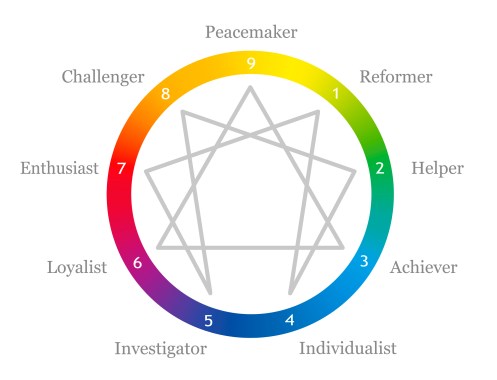
As I’ve written about before, I have found personality theories in general and especially the Enneagram to be transformative. Discovering and studying my best-fit type—the Three—offered me one of the most mind-blowing epiphanies in my journey of self-growth. The more I have studied the Enneagram, the more insights it has provided about how to lean into my strengths and address my weaknesses.

Creating Character Arcs (Amazon affiliate link)
A while back, I wrote a two-part series mapping the inherent possibilities for character arcs—both Positive Change and Negative Change—for each Enneagram type. This was based on the Lie/Truth specific to each type. Shortly after publishing those posts, I received an email from subscriber Caine Dorr asking how this information could be applied to the challenges of the writing life:
What advice can you give to writers who personally suffer from one or more of the core lies of their personal Enneagram, getting in the way of their writing?
Today, let’s explore the mysteries of each Enneagram type, as we delve into this profound intersection of self-discovery and storytelling prowess. Please note that, necessarily, this post and the one to follow next week offer the briefest of overviews of each type and inevitably present a limited perspective of strengths and weaknesses. Please use the post as a jumping-off point for further reflection and study.
Also, I will just say that it feels a bit cocky to have written what turned out to be a glowing recommendation of the Three toward the end of this article. However, as someone who started out feeling nothing less than horrified to realize she was a Three, I mark it as a sign of growth to now be able to recognize that Threes are awesome! This is not to say less of the other types, and I hope I have done them equal justice, but obviously writing about the Three is an inside-out job for me in a way that the others are not. I don’t claim to have realized all of the Three’s potential (or overcome all of its weaknesses), but I am proud to unabashedly advocate for its beauty.
Also please note that the examples included of authors for each type were mostly drawn from this post and this site and are suggestions only, since in most instances we can only guess at people’s types.
If you aren’t familiar with the Enneagram or aren’t yet sure what type best identifies you, check out the following resources (which include Amazon affiliate links):
Type One as a Writer: The Reformer
The One’s Vice: Anger
The One’s Virtue: Serenity
Core Lie the One Believes: “It’s not okay to make mistakes.”
Core Truth About the One: “You are good.”
Also referred to as the Perfectionist, Ones are characterized by a strong inner drive to improve themselves and the world around them. They are principled, responsible, and hold high standards for themselves and others. They have a keen sense of right and wrong, striving for perfection in their actions and endeavors. Driven by a desire to make a positive impact, Ones can be advocates for justice and moral integrity.
However, their pursuit of perfection can lead to self-criticism and a tendency to be overly critical of others. The inner critic, a prominent aspect of Type One, pushes them to constantly seek improvement but can also contribute to feelings of frustration and guilt. Understanding and navigating these dynamics is essential for personal growth and balance for Type One individuals.
Overcoming the One’s Weaknesses as a Writer
If perfectionism is a common downfall for many writers, it is nowhere more potent than in the One’s experience. For Ones, the inner critic can be especially barbaric. It is never satisfied, always nitpicking at the smallest of punctuation doubts, and translating practical opportunities for improvement into proof of general unworthiness. When unaddressed, this can lead Ones to give up in despair. Ironically, although Ones take criticism from others harder than just about anyone, they are also capable of turning the brutal criticism of their own inner critic outward onto fellow writers whom they believe must also live up these impossible standards.
One of the greatest challenges for this type as a writer is to learn to cultivate a healthy relationship with the inner critic. This can be especially deep work for Ones, who have internalized authoritarian voices that equate their self-worth with their ability to do things “right.” Simply becoming aware of the inner critic’s voice as a voice that is not inherently one’s own can be a tremendous step toward reclaiming a realistic relationship with the necessity of making mistakes and creating growth in one’s own writing.
Enhancing the One’s Strengths as a Writer
Ones possess a tremendous awareness of details. They understand how the pieces of a whole come together to make it work. Their competence at anything they set their minds to is arguably unmatched. Especially when freed from the burden of the unhealthy inner critic, Ones have the capacity to harness their talent and create a mind-blowing level of effectiveness.
More than that, the beautiful Truth at the heart of the One’s doubts about their worthiness is their tremendous potential for goodness. Their drive to improve the world can inspire them to create stories that redress society’s wrongs and encourage audiences to strive toward peace and cooperation.
Examples of Ones as Writers: C.S. Lewis, George Bernard Shaw, George Orwell, Tina Fey.
Type Two as a Writer: The Helper
The Two’s Vice: Pride
The Two’s Virtue: Humility
Core Lie the Two Believes: “It’s not okay to have your own needs.”
Core Truth About the Two : “You are wanted.”
Also referred to as the Caretaker, individuals of this type are characterized by their innate desire to meet the needs of others and build meaningful connections. Twos are empathetic and generous. They thrive on creating a sense of warmth and support in their relationships. They often put the well-being of others before their own, seeking validation and love through acts of service and care.
While their giving nature is a strength, Twos may struggle with setting boundaries and acknowledging their own needs. The fear of being unwanted or unloved can drive them to overextend themselves, leading to potential burnout. Understanding the balance between supporting others and caring for themselves is crucial for personal growth and fulfillment in Type Two individuals.
Overcoming the Two’s Weaknesses as a Writer
Some Twos may struggle to maintain a dedicated writing practice because “putting their writing first” feels too much like “putting themselves first.” As Twos work through their challenges with equating their self-worth with their service to others, they may find that disciplining themselves to focus on a dedicated writing habit can offer a tremendous leverage point for growth. They can also flip the script and practice recognizing how the act of writing can, in itself, be of service to others.
Twos may also tend to over-identify themselves with their writing, making it difficult to separate constructive criticism or rejection of their stories from personal criticism or rejection of themselves. Pride can be a reflexive defense for Twos, in which they swing from a humility arising from poor self-esteem into an arrogance that rejects the authority or wisdom of anyone who doesn’t appreciate them.
Enhancing the Two’s Strengths as a Writer
Thanks to their natural empathy, Twos have the capacity to write powerfully authentic characters with complex motivations and arcs. They are often highly emotionally intelligent and are able to translate this into an understanding of the subtle emotions that drive characters and create realistic story development. They may feel more comfortable writing from the heart rather than from the head, which can make plot-heavy or planning-forward approaches more challenging. They may instead thrive when turning their characters loose on the page and “watching to see what they will do.”
Twos are often the heart and soul of writing communities. Not only do they naturally seek to build community—whether of fellow writers or of their own community of readers—they foster it out of true love and devotion. They take great pride in putting people first, and their talent for empathy can again serve them well in understanding how to connect with and market to their audiences.
Examples of Twos as Writers: Lewis Carroll
Type Three as a Writer: The Achiever
The Three’s Vice: Self-deceit
The Three’s Virtue: Hope
Core Lie the Three Believes: “It’s not okay to have your own feelings and identity.”
Core Truth About the Three: “You are loved for yourself.”
Also referred to as the Performer, individuals of this type are characterized by their ambition, drive for success, and desire to achieve their goals. Threes are highly adaptable, charismatic, and skilled at presenting themselves in a positive light. They often set high standards for themselves, seeking external validation and recognition for their accomplishments. Threes are efficient, focused, and goal-oriented, using their natural talents to excel in various areas of life.
However, their relentless pursuit of success can cause them to neglect their authentic selves and emotions. The fear of failure and the need for approval can drive Threes to prioritize image over genuine fulfillment. Balancing ambition with self-awareness and authenticity is crucial for Type Three individuals on their journey of personal development.
Overcoming the Three’s Weaknesses as a Writer
Threes are extremely aware of what any given segment of society holds as its ideal, and they are driven to achieve that ideal. Although this awareness and drive can provide extraordinary opportunities for advancing both their talent and their careers, it can come at the high cost of separating them from their deep authenticity. They can easily lose touch (or realize they were never in touch) with their own personal vision for their writing. As they embark on a madcap dash to the top of their field, they can lose sight of the unique story they were meant to tell in this life.
Although Threes (like Twos and Fours) are a heart-based type, they generally feel safer leading from their heads. Their overvaluing of the mental can come at the expense of the emotional, to the detriment of both their art and their careers. Unlike Twos, it can initially be difficult for Threes to access the empathy necessary to write deeply authentic characters. They are more comfortable with the cause-and-effect of plotting. They can also struggle with burnout as they distance themselves further and further from the spark of inspiration that attracted them to writing in the first place, viewing writing more and more as a job rather than a creative act.
Enhancing the Three’s Strengths as a Writer
Threes’ value for competence and efficiency gives them the opportunity to be incredibly productive, both in the writing itself and in any related business endeavors. They understand what is required for success and can translate this into a keen awareness of what creates a successful story. They are exceptional at translating their mental vision into practical results. Charismatic and (seemingly) fearless, they relish challenges and are rarely discouraged by criticism, even when it stings.
When healthy Threes get in touch with their hearts, they are able to dedicate themselves to writing only what aligns with their own genuine vision. They have the capacity to write deeply truthful and inspiring works that touch on the deepest chords of humanity’s frailties and strengths. This allows them to access their core virtue of hope in writing authentic characters who plumb the depths of the human experience.
Examples of Threes as Writers: Truman Capote, F. Scott Fitzgerald (although neither were particularly healthy Threes)
Type Four as a Writer: The Individualist
The Four’s Vice: Envy
The Four’s Virtue: Equanimity
Core Lie the Four Believes: “It’s not okay to be too functional or too happy.”
Core Truth About the Four: “You are seen for who you are.”
Also referred to as the Romantic, Fours are characterized by a deep sense of uniqueness and a desire to express their authentic identity. Fours are keenly attuned to their emotions and are inclined to navigate the world through the lens of their subjective personal experiences. Driven by a longing for significance, they are naturally drawn to creativity and self-expression—in part as a way to distinguish themselves from others. Fours enjoy introspection and may grapple with feelings of melancholy. This emotional depth fuels their artistic pursuits. Their creativity shines in the form of unique perspectives, artistic endeavors, and genuine authenticity.
Overcoming the Four’s Weaknesses as a Writer
Because Fours create out of the deep well of their own subjective perspectives, which they may tend to over-romanticize, they can struggle with following “the rules” or accessing the necessary objectivity to hone their stories into effective finished products. Perhaps more than any other type, they can struggle with fears of diluting their personal vision for their work. “The rules” of fiction can feel like an intrusive constriction to their unbounded creativity—which, in turn, can feel like a betrayal of the Four’s very self since this subjective creativity is so inherent to their experience.
Fours may also struggle with insecurity and pessimism—about themselves and about the industry. They can struggle to trust that systems will support them and their unique vision. The Four’s core “vice” is that of envy, born of a general feeling of personal lack, which can cause them to endlessly indulge in unfavorable comparisons between themselves and others whom they view as more successful. A huge leverage point for a Four’s growth can be found in learning to genuinely celebrate fellow writers’ successes and to change the perspective that there isn’t “enough” success in the writing world to be shared by everyone. Instead, Fours may learn to recognize feelings of insecurity when faced with another writer’s success and to exchange it for gratitude toward this other writer for inspiring them and showing them what is possible.
Enhancing the Four’s Strengths as a Writer
Another of the suggested names for the Four is that of Artist. This recognizes their inherent passion for beauty and their intrinsically creative nature. Because they draw so much of their perspective of life from their own subjective experiences, they have the ability to create wildly original stories and effortlessly authentic characters. More than any other type, Fours are not afraid to look at the dark side. Not only are they capable of fearlessly revealing the shadows of humanity, their ability to see beauty in almost anything lets them shine a light into that darkness and transform it.
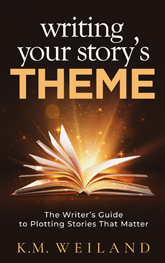
Writing Your Story’s Theme (Amazon affiliate link)
Fours are often effortlessly skilled at evoking holistic themes from their stories. Not only does their intense emotionality allow them to create dimensional and realistic characters, it also extends to the creation of thematic plots and settings that naturally arise from the internal struggles of those characters. Just as Fours themselves tend to project their inner experiences onto the outer world, they are able to translate the core themes of their characters’ arcs into plots that function as nuanced metaphors for those inner journeys.
Examples of Fours as Writers: Edgar Allan Poe, Virginia Woolf, Anne Rice, William Faulkner, Fyodor Dostoevsky, Tennessee Williams, and J.D. Salinger.
***
In this two-part series, we’ve so far journeyed through the dynamic landscape of Types One, Two, Three, and Four, unraveling the distinct qualities that shape how writers of the different types approach storytelling. Next week’s installment will shed light on Types Five, Six, Seven, Eight, and Nine, providing a comprehensive understanding of the diverse traits that influence writers in their creative endeavors. Stay tuned for the next installment as we continue our exploration and offer guidance on harnessing the unique attributes each Enneagram type brings to the writing process!
Stay Tuned: Next week, we will explore Types Five, Six, Seven, Eight, and Nine of the Enneagram.
Wordplayers, tell me your opinions! Do you identify with any of these Enneagram types for writers? Tell me in the comments!
Click the “Play” button to Listen to Audio Version (or subscribe to the Helping Writers Become Authors podcast in Apple Podcast, Amazon Music, or Spotify).
___
Love Helping Writers Become Authors? You can now become a patron. (Huge thanks to those of you who are already part of my Patreon family!)


